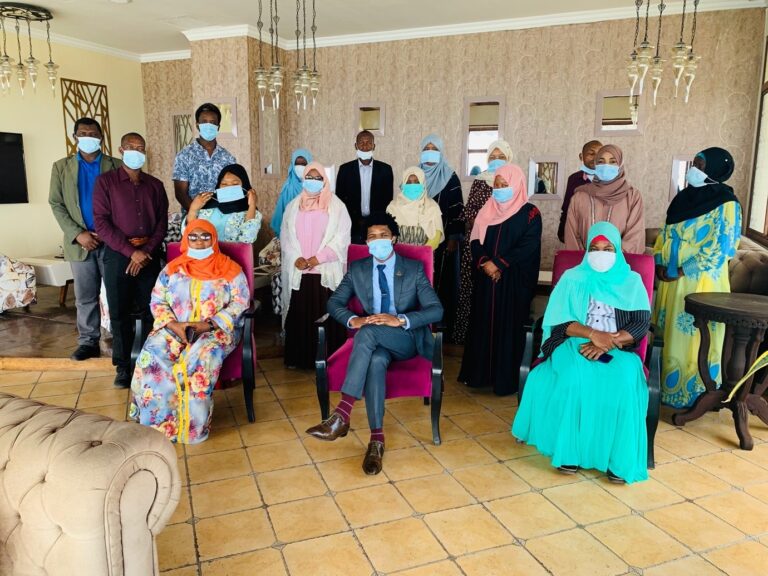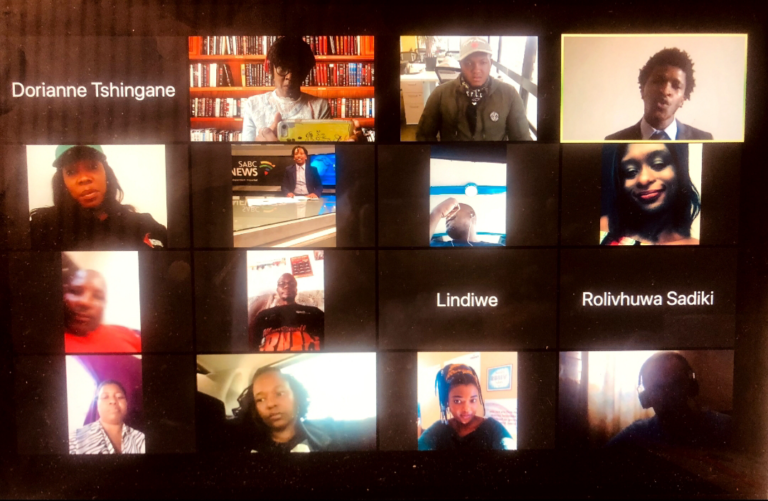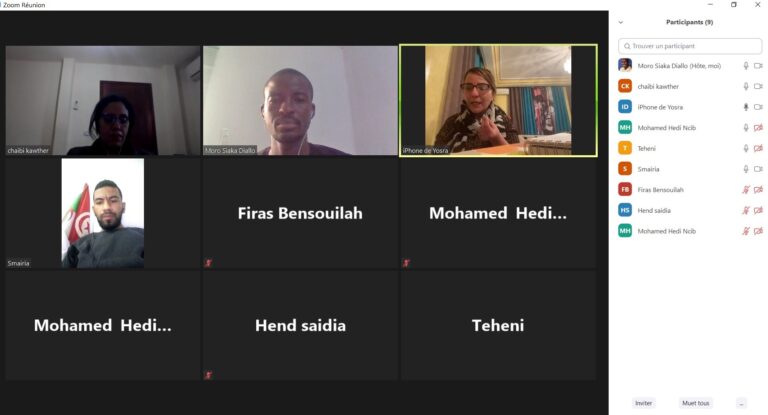
Training Mobilizing Media Fighting Covid19 , Zanzibar
With the pandemic in full force this past year, JHR started the ‘Mobilizing Media Fighting Covid19’ project. The project is aimed at providing accurate information on public health, countering misinformation on Covid19 and is financially supported by Global Affairs Canada (GAC). The project is active in 12 countries across Africa and the Middle East. Journalists are being trained and will produce stories about the impact of the pandemic on vulnerable groups, especially women and girls. Here is a view on some of the training that has taken place so far in Tanzania, South Africa, Uganda and Tunisia.
With contributions from the Regional project leaders Siyabulela Mandela (South Africa, Tanzania and Uganda) and Moro Siaka Diallo ( Mali and Tunisia).
Tanzania
While the international community has criticized the Tanzanian government for adopting a “denial stance” towards COVID-19, it is not a full reflection of the view of local people and journalists. Many agree that COVID-19 exists and both private and public institutions observe COVID-19 regulations and guidelines. The night before the training started, it was officially announced that the country’s President John Magufuli had died and Tanzania’s first female president, Samia Suluhu Hasan, (formerly the first female vice president) was sworn in. This was a very important story and extremely busy time for the trainees, due to the enormous national and international interest. Despite this the 25 trainees, of which a majority was female, continued the training and couldn’t help but include the transition in discussions, and specifically what it would mean in terms of the country’s change of policy towards COVID-19, and gender and equality issues in the country. They recognised this as a crucial opportunity to highlight that women are as eligible and as capable leaders as their male counterparts.
South Africa

Training by zoom in South Africa
The level of engagement from the participants was the biggest highlight of the training sessions. Of a total of 26 participants, many had a long history of reporting on various social justice issues in the country and had very compelling and timely story ideas which cover a range of topics from access to social services for African migrants and asylum seekers or proposals for stories on how the Covid-19 pandemic has impacted the township economies of South Africa with a special focus on women traders or women who participate in the informal economy. Other story proposals focused on the impact of Covid 19 on mental health and access to government mental health services during lockdown, including the equitable distribution of vaccines; the ability of sex workers to continue working, the impact on HIV positive people and the elderly including the Covid -19 impact on religion and faith in the country. It was very exciting to hear the passion from the journalists about Human Rights stories and how journalists can play a role in supporting change. We are all looking forward to bringing many of these story ideas to life.
Tunisia

Training by zoom Tanzania
The capacity building training targeting local journalists is part of the Regional Project « Mobilizing Media to fight Covid-19 » implemented by JHR in partnership with local media. This project covers 12 countries in the Sub-saharan and North Africa including Tunisia. It aims at involving journalists and media to contribute to the global efforts to fight Covid-19 and its impacts on human rights in general and the rights of women and girls in particular.
« From this training, I learned a lot of new things; new ways of working with information and making it reliable ” said Ms. Yosra MANAI, journalist at Radio 6 based in Tunis. With Covid-19 in Tunisia, the media sector is struggling to cope with disinformation which is overflowing and the lack of quality in stories related to women and girls’ rights. According to KAOUTHER Chaibi, journalist for Kashfmedia.com, « this training had met my expectations because it enabled me to improve my knowledge on human rights journalism and to be ready to fight disinformation related to Covid-19 ». For Salma FESSI, journalist at Radio des Mines in Gafsa, « I am ready to better manage the current situation “.
Français
Avec JHR, des journalistes en Tunisie ont appris les techniques de vérification de la désinformation et le reportage sensible au genre en contexte de Covid-19
Avec la Covid-19 en Tunisie, le secteur de l’information fait difficilement face à la désinformation qui est très croissante et à une qualité insuffisante des reportages touchant les problématiques des femmes et filles et de leurs droits. Selon KAOUTHER Chaibi, journaliste au site d’information Kashfmedia.com « cette formation a répondu à mes attentes car elle m’a permis d’améliorer mes connaissances sur le journalisme des droits de l’homme et d’être prête à lutter contre la désinformation liée à la Covid-19 ». Pour Salma FESSI, journaliste à Radio des Mines à Gafsa, « je suis prête à mieux gérer la situation actuelle ».
Cette activité de renforcement de capacités de journalistes locaux s’inscrit dans la mise en œuvre du Projet régional « Mobiliser les médias pour lutter la Covid-19 » exécuté par JHR en partenariat avec des média locaux grâce au soutien financier de Global Affaires Canada (GAC). Ce projet couvre 12 pays de l’Afrique subsaharienne et du nord y compris la Tunisie. Il vise à contribuer aux efforts mondiaux de lutte contre la Covid-19 et ses impacts sur les droits humains en général et les droits des femmes et des filles en particulier.


